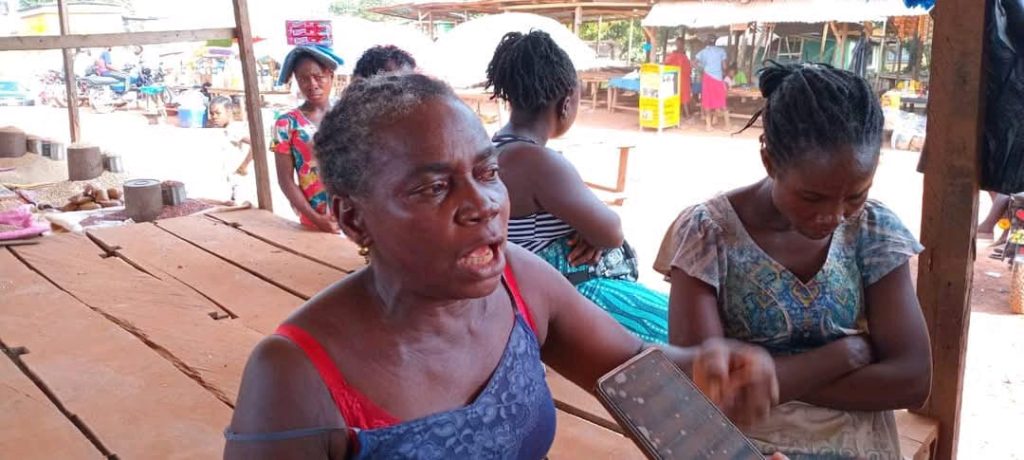The Plight of Gbarnga Marketers: A Cry for Economic and Political Stability
The bustling Gbarnga Central Market, typically a vibrant hub of commerce, has become a stage for mounting anxieties and frustrations amongst its traders. The sharp escalation of the US dollar exchange rate, coupled with a protracted political crisis at the House of Representatives, has created a perfect storm of economic hardship and uncertainty, leaving marketers desperate for government intervention and a return to stability. Interviews conducted with various traders paint a bleak picture of businesses struggling to survive and families grappling with the increasing cost of living. The escalating exchange rate has made imported goods prohibitively expensive for many Liberians, resulting in a dramatic decline in market activity and threatening the livelihoods of those who depend on trade for survival. Their cries for help echo a sentiment of betrayal, a feeling that the "change" they voted for has instead delivered chaos and deepening hardship.
The core issue lies in the skyrocketing US dollar exchange rate, which has effectively priced many ordinary Liberians out of the market. Traders are witnessing a sharp decrease in sales as customers struggle to afford basic necessities. The reliance on imported goods, priced in US dollars, has rendered them increasingly inaccessible. This economic squeeze is further compounded by the political instability stemming from the leadership crisis in the House of Representatives. The ongoing power struggle has not only paralyzed legislative action but also eroded public trust in the government’s ability to address the nation’s pressing economic challenges. This toxic combination of economic and political turmoil is fueling a sense of despair among the marketers, who see their businesses and their future hanging precariously in the balance.
Adding fuel to the fire of economic hardship is the political stalemate within the House of Representatives. The ongoing leadership dispute has created a vacuum of effective governance, hindering the implementation of policies that could potentially mitigate the economic crisis. This political paralysis is viewed by many as a direct contributor to the nation’s economic instability, further eroding public trust and confidence in the government. The market traders see the infighting among lawmakers as a blatant disregard for the plight of ordinary citizens, prioritizing personal power struggles over the welfare of the nation. They argue that the very people entrusted with the responsibility of representing their interests are instead exacerbating their suffering. The calls for government intervention are growing louder, fueled by a sense of urgency and desperation.
The Supreme Court’s recent ruling on the disputed House leadership offers a potential pathway out of the political impasse, but the government’s response to the ruling will be a crucial test of its commitment to the rule of law. The marketers, alongside other concerned citizens, are urging President Boakai and Vice President Kroon to respect and implement the court’s decision. They fear that failure to do so could plunge the nation into further political chaos, exacerbating the economic hardship and undermining the foundations of democratic governance. The call for adherence to the rule of law is not merely a procedural demand; it represents a fundamental plea for stability and a restoration of trust in the government’s ability to navigate the nation through these turbulent times. The Supreme Court’s decision is seen as a beacon of hope, a potential turning point in the political crisis, and its implementation is viewed as essential for restoring order and stability.
The growing dissatisfaction among Gbarnga’s marketers reflects a broader sentiment of disillusionment and anxiety across Liberia. The hope for change that accompanied the Boakai-Kroon administration’s election has been replaced by a growing sense of unease as the nation grapples with economic and political challenges. The citizens of Gbarnga, like many others across the country, are yearning for decisive leadership, effective governance, and a tangible improvement in their living conditions. They are looking to their elected officials to prioritize the nation’s welfare over political maneuvering and to implement policies that address the root causes of their economic hardship. The calls for action are not just about stabilizing the exchange rate or resolving the political crisis in the House; they represent a deeper cry for a more responsive and responsible government, a government that prioritizes the needs of its citizens and upholds the principles of democratic governance.
The situation in Gbarnga serves as a microcosm of the larger challenges facing Liberia. The marketers’ frustrations are a stark reminder of the interconnectedness of political stability and economic prosperity. The government’s response to the current crisis will be a critical test of its leadership and its commitment to the well-being of its citizens. The hope remains that the government will heed the calls for action, not only to address the immediate economic and political challenges but also to lay the foundation for a more stable and prosperous future for all Liberians. The future of Gbarnga’s market, and indeed the nation as a whole, hinges on the government’s ability to restore confidence, stabilize the economy, and uphold the rule of law. The time for decisive action is now, before the situation spirals further out of control and the hopes for a better future are completely extinguished. The cries from Gbarnga are not just a local concern; they are a national imperative that demands immediate attention and a comprehensive response.














